Does Boiling Water Kill Weeds? Facts & FAQ
-
Pete Ortiz
- Last updated:
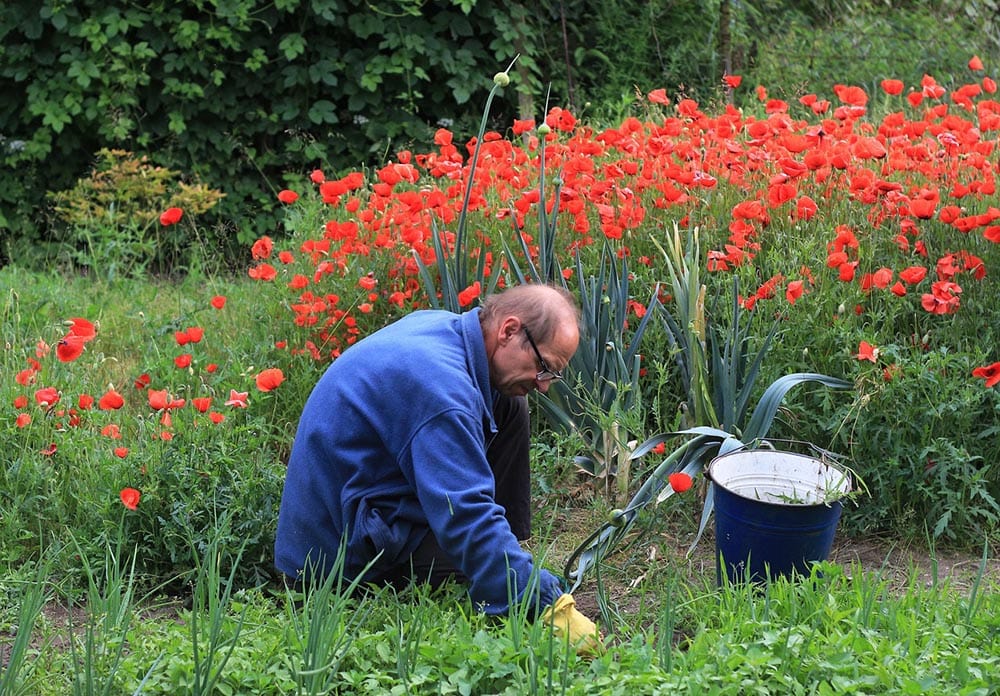
Invasive weeds are a nightmare for any gardener. They grow like a plague and steal the nutrients from the soil that were intended for your veggies, fruits, or flowers. And weeds are very hard to kill, especially without damaging the cultivated plants. Thankfully, there is a simple, cheap, and effective solution: boiling water! Does it really kill weeds? Yes, it’s very effective against most species with a shallow root system.
It does take more effort on well-established weeds, though. Furthermore, if you don’t apply it properly, the water will destroy your garden plants as well. So, how do you “pick your targets”? What are the best techniques for using water against weeds? How long does it take to get the job done? Are there any alternatives? Let’s find out!
What Is a Weed?
To put it simply, a weed is a plant that you don’t want to grow in your garden, field, or lawn. For the most part, weeds don’t carry any value. And it’s rather hard to control their population unless you have the necessary tools and know the right techniques. They mature fast and overwhelm the delicate flowers and plants that we grow in our gardens. Yes, weeds are almost always stronger and more resilient than garden plants.
So, any invasive wild plant that poses a threat to your cultivated goods is considered to be a weed. If you don’t remove them ASAP, they will kill your crops and vines before they produce anything. Technically, any plant that requires little maintenance and spreads easily can be called a weed.
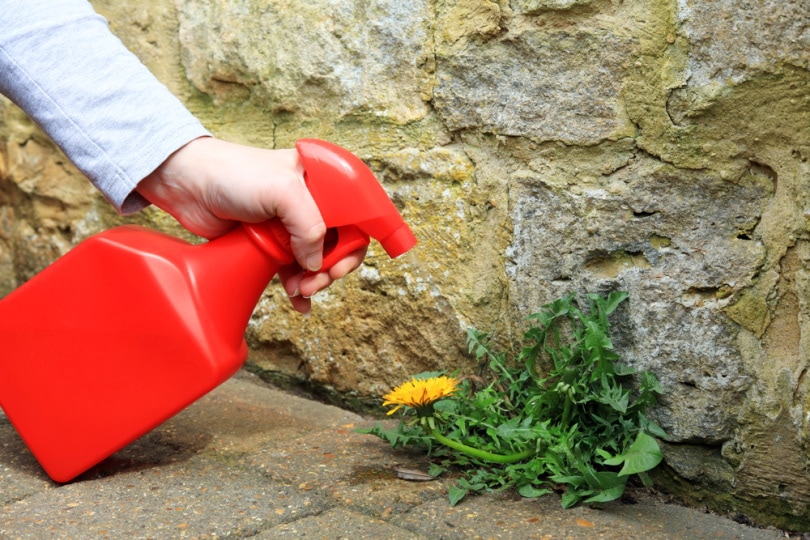
Are All Weeds Bad?
No, not quite: certain weeds are known to compost the soil and attract insects (the good kind). Besides, the roots of weeds prevent the soil from eroding (a very common issue in windy and rainy areas). In the long run, when the weeds die, they turn into premium-quality fertilizer. Next, the roots serve as organic “food” for the soil, worms, and microbes, not to mention improve air circulation.
And one more thing: weeds flower more often than the average garden plant. That attracts pollinators and stimulates biodiversity. This doesn’t mean you don’t have to kill weeds, of course, especially if you have a relatively small garden. Just keep in mind that in some situations, you can turn weeds from the #1 enemy into something beneficial.
How Hot Does Boiling Water Get?
The boiling point for water at sea level is 212°F (100°C). This is when it turns into steam/gas and starts to evaporate. Now, at extremely high altitudes, water will boil at a slightly lower temperature (194°F/90°C). This is possible due to lower atmospheric pressure. For the most part, you want to keep the water at 212 degrees. The key here is for the water to be boiling so that you can successfully kill weeds.
Keep your eyes on the bubbles at the bottom of the kettle/pan. Small-sized bubbles indicate the water is 150–160°F; medium-sized bubbles mean it’s at 175–180°. Once they get bigger, the temperature will reach 185°. The final stage is when the bubbles float to the surface. At first, the temps will be 195–205°; a minute or two later, you will have boiling water: 212°F.
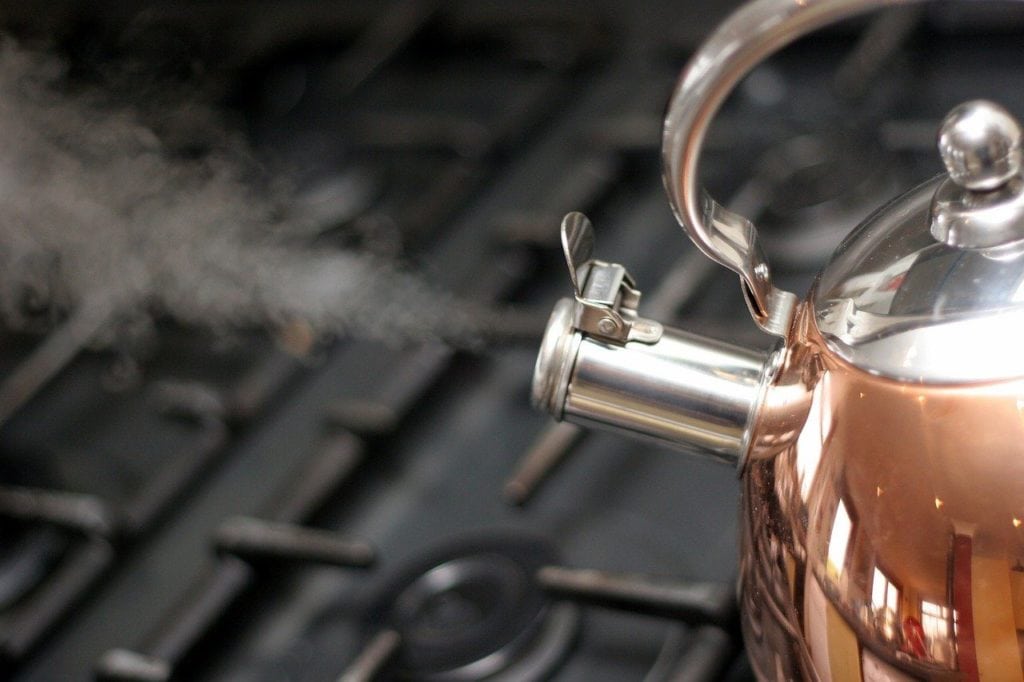
Is It Effective Against Weeds?
Yes, it works like a charm on weeds with a small, weak root system. But the lower the temperature, the less efficient the water will be. When it’s just warm, the results will be disappointing. When the water is boiling, it can destroy weeds completely, including the stems, leaves, roots, and even seeds hiding in the soil.
However, it’s not that great against well-established weeds. We’re talking about plants that have a strong, complex root system. You’ll have to use more water to handle them. So, while it’s not a perfect remedy, boiling water is a working solution. Just don’t expect it to eradicate every single weed in your garden regardless of its size and age.
How Long Does It Take to Get the Job Done?
The best thing about boiling water—you won’t have to wait for weeks before it takes effect. As mentioned, boiling water can kill not only the plants but also the roots. This way, weeds lose any chance of growing back (especially if you’re growing your plants in a garden bed), which is a big pro. You should expect the weeds to fade away and die in 1–2 days or even sooner.
More good news: boiling water is the most natural product that you can use against weeds. It won’t damage the soil, mess up the nutrient balance, or affect the future growth of your plants in any way. Just make sure it penetrates the ground where the weeds are growing to achieve the desired effect. Otherwise, you’ll just be watering the soil.
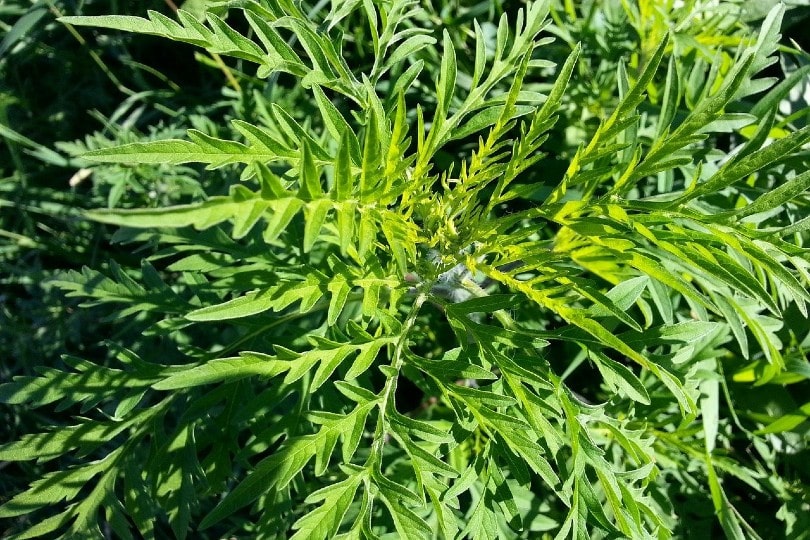
Won’t It Kill Your Flowers?
The answer is yes, it most certainly will. Furthermore, since most cultivated plants are much weaker than weeds, they’ll be even less resistant to boiling water. So, what should you do, then? There’s an excellent solution: a tea kettle. As long as it has a spout that allows for high precision and a comfy handle to control the movement, it shouldn’t be hard to kill the weeds without damaging the plants.
Killing Weeds with Boiling Water: A Step-by-Step Guide
This is a very straightforward process. As long as you have a kettle and a means to boil water, you’re good. So, once the water is boiling, simply aim the kettle towards the weed that you want to kill and gently pour the water. Indeed, spouts make it very easy to target specific plants while leaving the rest intact. Depending on how big the weed is, you might want to spill more water onto it.
And if the weed infestation is strong and the roots are deep in the soil, “attack” them with boiling water 2–3 times to get the desired effect. Also, take some time to cut the stems/foliage. That way, the water will have a free pass to the roots and will do a better job of stopping the infestation. Oh, and do put on protective shoes and long sleeves. You don’t want to be on the receiving end of that boiling water!
A quick note: even if the water fails at destroying certain weeds, it will still make the roots weaker. That means it will take a lot less effort to pull them out and throw them away. And if you combine it with other solutions, that might just do the trick.
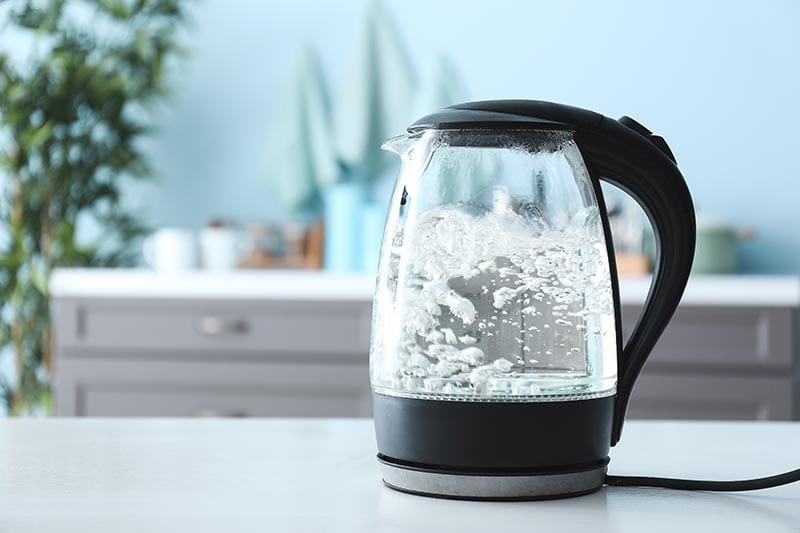
Maybe You Should Use Vinegar Instead?
Synthetic chemicals have proven to be effective against weeds. They are often used on government-owned or commercial farms. But, if you only have a relatively small garden in the backyard, synthetics aren’t the ideal alternative to boiling water. Instead, you could use vinegar. Just like water, it is a natural solution—a liquid with the right properties. As long as it’s white, distilled vinegar, it will keep weed growth at bay.
A spray bottle is the best way to apply vinegar. Just fill it up and spray away. Vinegar does have one big downside: it only kills what it touches. Thus, you’ll have to make your way to the roots (with a shovel) and treat them with it, which tends to be a tedious job. But if you skip this part, while the stems will die, the roots will come back even stronger next season.
What About Salt?
Salt (both rock and table) is a 100% non-toxic product, and it takes around 10 days to remove weeds. The recommended mix is 2 parts salt to one part of water. If you go with 3:1, you’ll run the risk of affecting the acidity of the soil. Generally, we recommend against using salt as it’s very easy to hurt your flowers or other plants with it.
Salt (especially rock salt) has a very strong dehydrating effect (it absorbs most of the moisture). That leads to rotten roots and slow growth. It’s quite a challenge to carry out “selective strikes” with it. So, it would be best to stick with boiling water or some vinegar, but not salt. Dish soap could work, but on its own, it isn’t particularly strong.
Conclusion
Nobody likes weeds; they don’t look much and cause a lot of harm to plants. By stealing the water, nutrients, and vital elements, weeds make fruits, vegetables, and flowers wither and die. Now, there are lots of different products for removing weeds out there, including chemicals. However, some of these solutions are rather expensive and require pro skills to use. That’s when water comes in.
If you follow our recommendations and do everything right, boiling water will be one of the most powerful tools in your weed-killing arsenal. Just put the kettle on, wait until the water boils, and use a spout to handle the bad plants. Boiling water is efficient, takes effect almost immediately, and costs literally nothing!
- 5 Weeds You Want in Your Garden
- Why Weeds Might Actually Be a Good Thing to Have in the Garden
- Boiling Water And Plants – Boiling Water Weed Control And Other Uses
- Does Boiling Water Kill Weeds? See For Yourself
- How to use boiling water to kill weeds
- Salt and Water Mixture to Kill Weeds in Grass and Flowers
- Does Salt Kill Weeds Permanently? How to Use It]
- Does Boiling Water Kill Weeds? Tips on Using a Hot Water Weed Killer
- Why you’re wasting your time pouring boiling water over weeds
- How Long Does It Take for Salt to Kill a Weed?
- How to Kill Weeds Naturally
- How to Check Water Temperature Without a Thermometer
- Edu – Water Temperatures
- Wikipedia – Weed
Featured Image Credit: radekkulupa, Pixabay
Contents


